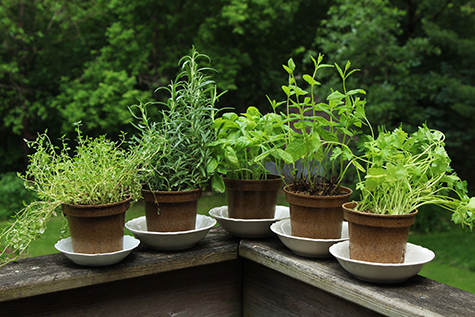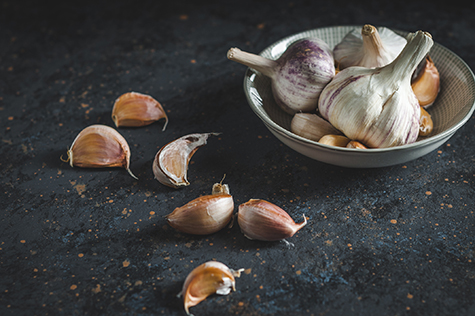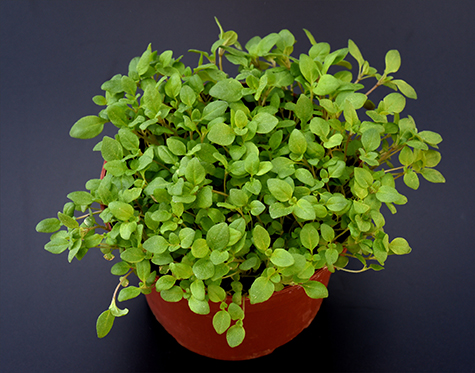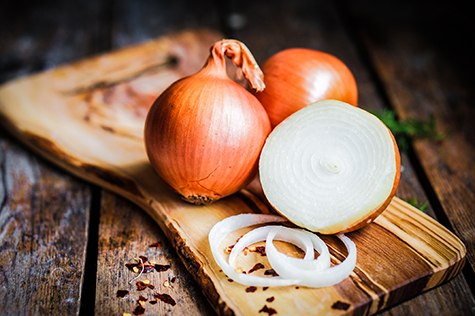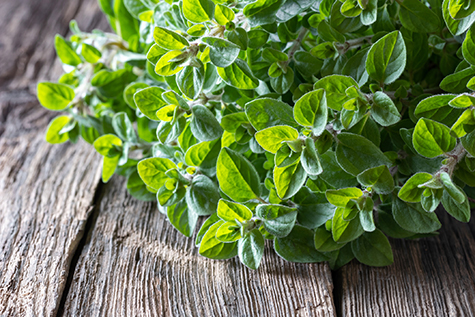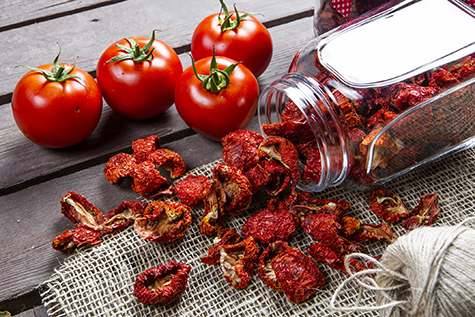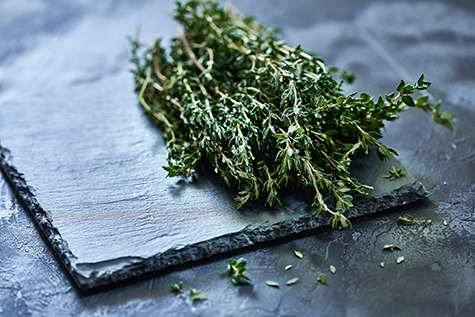Meet the Age-Defying Spices of Sardinia, Italy

Over the past year, FoodTrients has been exploring foods and flavors from around the globe.
This week, we take a look at the flavors of Sardinia, Italy as part of our new series on the world of foods, herbs and spices that help create some of distinctive dishes we have featured, and the age-defying benefits they deliver.
An island in the middle of the Mediterranean Sea, Sardinia is known as a ‘blue zone’; a community which is home to some of the oldest living people in the world. Lifestyle factors like physical activity and social support as well as diet play a big role in this, with many Sardinians eating whole foods and often hunting and gathering foods themselves. Whole grains make up most of the diet, followed by goat and sheep milk and cheese. As a region of Italy, spices such as garlic, basil, and oregano are commonly used and incorporated into dishes for both flavor and potential medicinal benefits as well.
Basil
A fragrant herb used around the world, medicinally, basil has been known to assist with stomach and digestive issues, kidney conditions, promoting circulation, and even used to treat insect and snake bites. This common Italian herb is often used in Sardinian cuisine, adding a sweet, fresh flavor to tomato-based sauces, meat dishes, and salads. It pairs well with other common Sardinian spices such as garlic and onion.
Garlic
Garlic is used medicinally for a variety of illnesses such as cold and flu symptoms and insect bites, but also may be heart protective, helping with diabetes and aiding in reducing blood pressure. Used in the kitchen to provide a distinct ‘Italian’ flavor, garlic is used in most seafood, meat, and pasta dishes in this culture.
Marjoram
A close family member to oregano, marjoram is used medicinally for conditions such as viruses, bacterial infections, and can be applied topically for treating pain and inflammation. In Sardinian cuisine, marjoram is used for its slightly sweeter taste compared to oregano in all types of dishes ranging from pasta, sauces, and meats. It is also used as a beautiful garnish atop finished meals.
Onion
Onions are used medicinally all over the world for their anti-microbial and anti-inflammatory properties. They can be beneficial for many conditions such as respiratory illnesses including the common cold and flu and even potentially preventing certain cancers as part of an anti-cancer diet. Onion is used in many Sardinian dishes because it pairs well with other herbs and spices such as garlic and oregano, which are common to the culture’s savory cuisine. You’ll find it as a common base vegetable used throughout the cuisine.
Oregano
A powerful herb used medicinally for a variety of conditions, oregano is often used for respiratory and gastric disorders, headaches, and can be used topically for insect bites, muscle and joint pain, and even acne. In Sardinian dishes, oregano is used to provide a bitter yet earthy taste, providing a nice flavor profile when combined and cooked with other Italian herbs.
Sun Dried Tomato
Made by drying tomatoes in the sun, these unique tomatoes are used medicinally similar to tomatoes as they keep most of their nutritional components intact during the drying process. Tomatoes may be used for the common cold and flu, digestive disorders, and possibly even playing a part in preventing cancer. In Sardinian cuisine, sun dried tomatoes are added for a unique flavor to most pasta, sauces, vegetable, and meat dishes. They taste very different than fresh tomatoes and have a sweet yet tart flavor.
Thyme
Thyme is used medicinally for a variety of ailments such as digestive discomfort, throat irritations, and coughing. It can also be used as an appetite stimulant, antiseptic in mouthwashes, and help calming skin disorders. In Sardinian dishes, thyme offers an herbal, grassy flavor that is often combined with herbs such as garlic, oregano, and used on seafood, meats, and sauces, providing a great seasoning to any dish.
References Italia. Sardinia. http://www.italia.it/en/discover-italy/sardinia.html. Accessed 12/20/20 Blue Zones. Sardinia. https://www.bluezones.com/exploration/sardinia-italy/. Accessed 12/20/20. Natural Medicines Database. Basil. https://naturalmedicines.therapeuticresearch.com/databases/food,-herbs-supplements/professional.aspx?productid=303 Updated 10/15/20. Accessed 12/20/20. Natural Medicines Database. Tomato. https://naturalmedicines.therapeuticresearch.com/databases/food,-herbs-supplements/professional.aspx?productid=900. Updated 7/10/20. Accessed 12/20/20. Natural Medicines Database. Garlic. https://naturalmedicines.therapeuticresearch.com/databases/food,-herbs-supplements/professional.aspx?productid=300. Updated 12/21/20. Accessed 12/21/20. Natural Medicines Database. Onion. https://naturalmedicines.therapeuticresearch.com/databases/food,-herbs-supplements/professional.aspx?productid=643. Updated 3/3/20. Accessed 12/20/20. Natural Medicines Database. Marjoram. https://naturalmedicines.therapeuticresearch.com/databases/food,-herbs-supplements/professional.aspx?productid=563. Updated 11/3/20. Accessed 12/20/20. Natural Medicines Database. Oregano. https://naturalmedicines.therapeuticresearch.com/databases/food,-herbs-supplements/professional.aspx?productid=644. Updated 7/10/20. Accessed 12/20/20. Natural Medicines Database. Thyme. https://naturalmedicines.therapeuticresearch.com/databases/food,-herbs-supplements/professional.aspx?productid=823. Updated 9/18/20. Accessed 12/20/20. The Spruce Eats. Oregano. https://www.thespruceeats.com/is-oregano-the-same-as-marjoram-1807040. Updated 7/09/20.
Accessed 12/20/20. The Spruce Eats. Thyme. https://www.thespruceeats.com/all-about-thyme-996135. Updated 7/09/20. Accessed 12/20/20.
